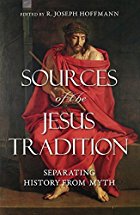11 am 18th July 2011, Revised the section “What the Chapter is about”
 James McGrath begins his review of chapter 8 protesting that Doherty is placing a different interpretation on some known and agreed facts in order to argue a mythicist case.
James McGrath begins his review of chapter 8 protesting that Doherty is placing a different interpretation on some known and agreed facts in order to argue a mythicist case.
The chapter gets several things right and mentions important information about the context of earliest Christianity – and yet consistently manages to interpret those details as leading to mythicism.
It sounds as if McGrath simply does not want Doherty reinterpreting anything at all in a way that can present a mythicist argument. But that is hardly a sound objection to what Doherty’s actual interpretations and arguments are.
Unfortunately McGrath does not specify which arguments or interpretations Doherty uses are faulty. In fact, as we have come to expect in these reviews, Doherty’s arguments are sidestepped. In their place McGrath reverts to pulling out arguments he has used against mythicism time and again even before reading Doherty’s book. Sometimes he claims to be informing readers of what Doherty argues, but in the following response I will quote passages from Doherty that belie McGrath’s portrayals of Doherty’s lines of reasoning. Continue reading “Doherty’s Chapter 8 in outline & Review of McGrath’s review”

 Continuing from the previous post, addressing McGrath’s
Continuing from the previous post, addressing McGrath’s  Thanks to
Thanks to 

